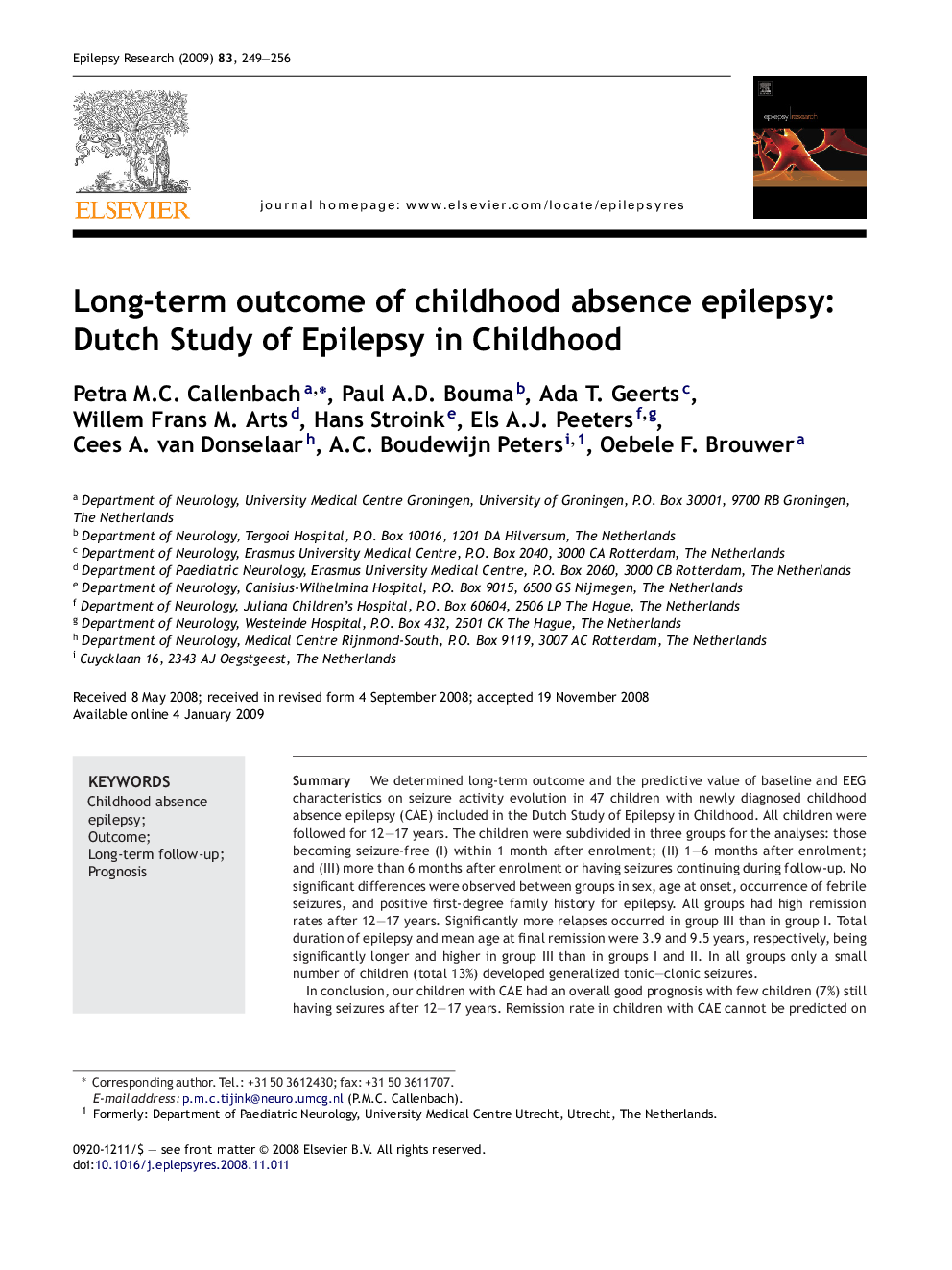| کد مقاله | کد نشریه | سال انتشار | مقاله انگلیسی | نسخه تمام متن |
|---|---|---|---|---|
| 3052705 | 1579941 | 2009 | 8 صفحه PDF | دانلود رایگان |

SummaryWe determined long-term outcome and the predictive value of baseline and EEG characteristics on seizure activity evolution in 47 children with newly diagnosed childhood absence epilepsy (CAE) included in the Dutch Study of Epilepsy in Childhood. All children were followed for 12–17 years. The children were subdivided in three groups for the analyses: those becoming seizure-free (I) within 1 month after enrolment; (II) 1–6 months after enrolment; and (III) more than 6 months after enrolment or having seizures continuing during follow-up. No significant differences were observed between groups in sex, age at onset, occurrence of febrile seizures, and positive first-degree family history for epilepsy. All groups had high remission rates after 12–17 years. Significantly more relapses occurred in group III than in group I. Total duration of epilepsy and mean age at final remission were 3.9 and 9.5 years, respectively, being significantly longer and higher in group III than in groups I and II. In all groups only a small number of children (total 13%) developed generalized tonic–clonic seizures.In conclusion, our children with CAE had an overall good prognosis with few children (7%) still having seizures after 12–17 years. Remission rate in children with CAE cannot be predicted on the basis of baseline and EEG characteristics. The early clinical course (i.e. the first 6 months) has some predictive value with respect to the total duration of absence epilepsy.
Journal: Epilepsy Research - Volume 83, Issues 2–3, February 2009, Pages 249–256